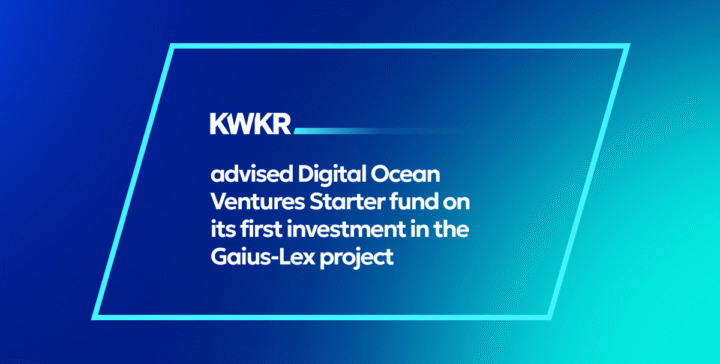KWKR advised the Digital Ocean Ventures Starter fund on its first investment in the Gaius-Lex project
The KWKR team advised DOV Starter (Digital Ocean Ventures Starter) on its first investment, supported by the European Funds for a Modern Economy (FENG), in Flathub sp. z o.o. – the company behind Gaius-LEX, an AI-powered legal assistant designed to support lawyers and law firms.

The total transaction value amounted to approx. PLN 1.85 million. The round also included a co-investment by business angel Vladyslav Muzhylivskyi, PhD. The funds will be used to support the further development of Gaius-LEX in both Poland and international markets.
KWKR provided comprehensive legal support to the fund at every stage of the transaction – from legal due diligence through the preparation and negotiation of investment documentation to transaction closing. The project required close cooperation with the DOV investment team, the company’s founders, and legal counsel representing Flathub. It also involved collaboration across various internal teams at KWKR and an in-depth understanding of the legaltech sector and AI-related regulations in the legal industry.
The KWKR team involved in the transaction included experts from the corporate practice: partner Paulina Opiełka, senior associate Paweł Machowski, associates Katarzyna Mikosz, Dominik Korybalski, and Kamil Stengert, as well as junior associates Sandra Murdzek and Maciej Ziemiański (all from the corporate team). The project was also supported by associate Anna Bartosiak (compliance), associate Joanna Kik (TMT), and intern Milena Taciuch from the corporate law team.
The founders and Flathub were advised by the law firm The Heart Legal.
This transaction marks the first investment by the DOV Starter fund and reflects the global trend of increasing investment in AI-based legal solutions. According to publicly available forecasts, the legal AI market is expected to grow from USD 1.4 billion to USD 3.9 billion by 2030.
What sets Gaius-Lex apart in the legaltech space is its use of lightweight, local sLLM models instead of large cloud-based language models. These models can be run directly on the client’s infrastructure, significantly enhancing data security by eliminating the need to send sensitive legal information to external systems.









